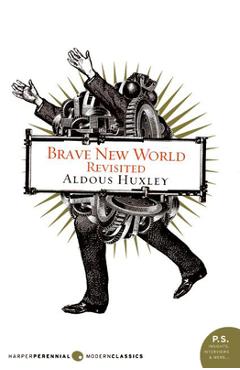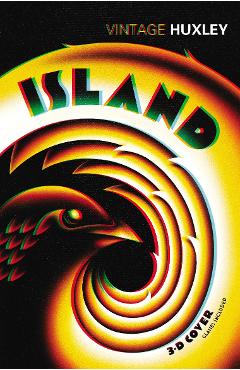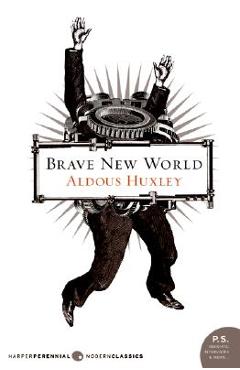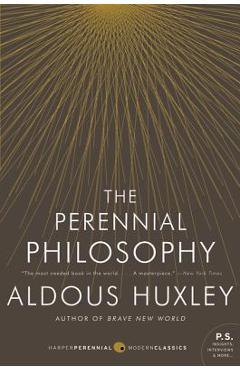Brave New World Revisited - Aldous Huxley

Detalii Brave New World Revisited -
libris.ro
94.81 Lei
105.34 Lei
Fiction
Aldous Huxley
Brave New World Revisited - - Disponibil la libris.ro
Pe YEO găsești Brave New World Revisited - de la Aldous Huxley, în categoria Fiction.
Indiferent de nevoile tale, Brave New World Revisited - Aldous Huxley din categoria Fiction îți poate aduce un echilibru perfect între calitate și preț, cu avantaje practice și moderne.
Preț: 94.81 Lei
Caracteristicile produsului Brave New World Revisited -
Comandă Brave New World Revisited - Online, Simplu și Rapid
Prin intermediul platformei YEO, poți comanda Brave New World Revisited - de la libris.ro rapid și în siguranță. Bucură-te de o experiență de cumpărături online optimizată și descoperă cele mai bune oferte actualizate constant.
Descriere magazin:
When the novel Brave New World first appeared in 1932, its shocking analysis of a scientific dictatorship seemed a projection into the remote future. Here, in one of the most important and fascinating books of his career, Aldous Huxley uses his tremendous knowledge of human relations to compare the modern-day world with his prophetic fantasy. He scrutinizes threats to humanity, such as overpopulation, propaganda, and chemical persuasion, and explains why we have found it virtually impossible to avoid them. Brave New World Revisited is a trenchant plea that humankind should educate itself for freedom before it is too late. Brave New World Revisted (first published in 1958) is not a reissue or revision of 0060850523 Brave New World. Brave New World is a novel, whereas Brave New World Revisted is a nonfiction exploration of the themes in Brave New World. Huxley uses his erudite knowledge of human relations to compare our actual world with his prophetic fantasy of 1931. It is a frightening experience, indeed, to discover how much of his satirical prediction of a distant future became reality in so short a time. -- New York Times Book ReviewWhen the novel Brave New World first appeared in 1932, its shocking analysis of a scientific dictatorship seemed a projection into the remote future. Here, in one of the most important and fascinating books of his career, Aldous Huxley uses his tremendous knowledge of human relations to compare the modern-day world with his prophetic fantasy. He scrutinizes threats to humanity, such as overpopulation, propaganda, and chemical persuasion, and explains why we have found it virtually impossible to avoid them. Brave New World Revisited is a trenchant plea that humankind should educate itself for freedom before it is too late. --Kirkus Review Huxley uses his erudite knowledge of human relations to compare our actual world with his prophetic fantasy of 1931. It is a frightening experience, indeed, to discover how much of his satirical prediction of a distant future became reality in so short a time. -- New York Times Book ReviewWhen the novel Brave New World first appeared in 1932, its shocking analysis of a scientific dictatorship seemed a projection into the remote future. Here, in one of the most important and fascinating books of his career, Aldous Huxley uses his tremendous knowledge of human relations to compare the modern-day world with his prophetic fantasy. He scrutinizes threats to humanity, such as overpopulat

Produse asemănătoare
Produse marca Aldous Huxley

The Doors of Perception and Heaven and Hell - Aldous Huxley
![]() libris.ro
libris.ro
Actualizat in 28/10/2025
100.39 Lei




